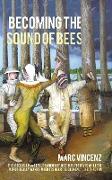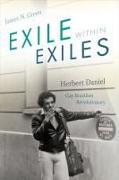Becoming the Sound of Bees
BücherAngebote / Angebote:
This book starts out listening for bees, and hears none, the listener being something of a pupa in a cocoon on the early pages. Honeycombs begin not as sources of Swiftian sweetness and light, but sloughs of despond. Honeybees themselves, initially silent, burn like fire at the stake. The hive is the shadow of death, full of sand fleas that stand in for the desiderated insects, along with "scrubitch" mites, Hercules caterpillars and flies: electro-kinetic pellets flecking / blank walls. The planet and its atmosphere, thus un-beed, become a single organism whose surface swarms with flotsam, jetsam and scabs reincarnating as silverfish. Earth's innards comprise more non-beehives that pullulate instead with arachnids and microbes and single cells that Vincenz eventually nurtures to dinosaurhood. We get former human cultures who made hive-like arrangements: ...the Cucuteni-who incinerated their own homes before wandering on...Bajau Laut tribes of Semporna who built their homes on coral reefs in the ocean. And that settled ocean, as always in Vincenz, is near. It's the opposed cosmos, again not a social insect world, but buzzing with fish, not in shoals, not in pods, but singularly alone like us. However, complete solitude is not our lot, because the seashore is inhabited by a remarkable figure: beachcombing Ivan in his ragged rope belt. He recurs throughout Becoming the Sound of Bees, making sense, or nonsense, of everything: screaming blue at the sea, braving the heavy metals of that other social creature, the bedded oyster, his eyes watering as he surveys the city's polluted human hive. This new book by Marc Vincenz, through sheer dint of numberless invention, hums louder and more beautifully than any of our world's collapsing colonies. Tom Bradley
Folgt in ca. 10 Arbeitstagen




